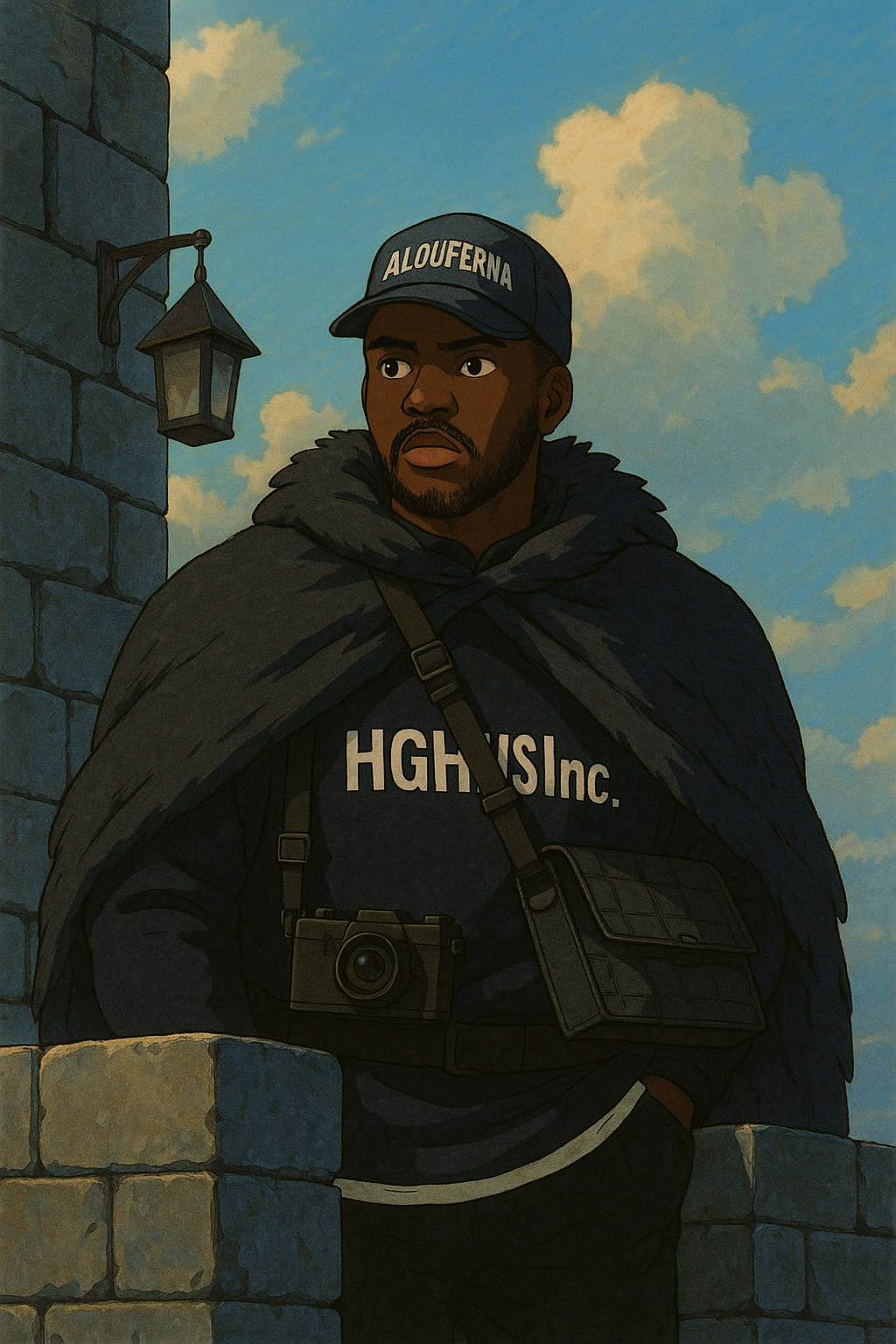
19 May Who’s watching the gate in your life?
Over the weekend, I spent time away with a group of younger men I mentor. We gathered in a quiet countryside retreat to reflect, talk honestly, eat well, and wrestle with a single question:
What does it mean to be a watchman?
It’s a term rooted in ancient practice—long before smartwatches and motion sensors, cities had physical walls and guards who stayed awake while others slept. Their job was simple but vital: watch the horizon. Spot trouble early. Sound the alarm.
We explored the concept from a spiritual and biblical perspective, but it became clear that the principle is far broader and more universal than any one tradition. Whether or not you believe in God, the role of a watchman is deeply relevant for anyone trying to live with clarity, purpose, and integrity.
Here are three lessons we took away from that weekend that I think can help you, wherever you are in your leadership journey—whether that’s leading a team, building a business, raising a family, or simply leading yourself well.
1. You have a gate, and it’s yours to guard
Let me tell you a quick story.
Years ago, a close friend of mine worked as a concierge at a well-known co-working space in London. His role wasn’t flashy—just to keep an eye on who came in and out, make sure people checked in, and alert the team if anything seemed off. One Monday morning, while he was dealing with a delivery and briefly distracted, someone tailgated behind a member and walked right in. They looked confident—laptop bag, headphones, the usual startup uniform.
No one questioned it. Hours later, one of the startups on that floor reported two missing laptops and a phone. The man was long gone. Security footage showed him blending in, setting up at a desk for a few hours, and then walking out with thousands of pounds worth of equipment, completely unnoticed.
It wasn’t negligence. It was just a few seconds of inattention, but it cost a lot. It struck me how similar this is to our own lives.
All of us have a gate, a threshold, a space that we are uniquely responsible for guarding—be it our time, energy, relationships, boundaries, values. When we don’t watch the gate, the wrong things get in: burnout, toxic relationships, regret, distraction, numbness. The worst part is, the consequences usually show up later. At first, it may appear that nothing is missing. Then one day you wake up and realise something precious—focus, joy, creativity—has quietly disappeared.
The first role of a watchman is personal. Watch yourself; your schedule, your habits, inputs, and triggers. Now I don’t mean this in a hyper-anxious way, but in a deeply intentional one.
What have you allowed into your life recently that needs to be escorted out? The good news? Once you reclaim the gate, you can decide what stays and what goes.
2. Leaders are always on the wall
One of the most sobering things I’ve learned is this: the more leadership you carry, the more your alertness matters.
When I talk to founders, managers, creatives, and parents in my community, one theme always comes up—fatigue. We get tired of being “on.” Of being the responsible one. Of having to carry the weight of outcomes. Sometimes, understandably, we want to clock out.
However, leadership doesn’t clock out.
I don’t say this to be dramatic—rest and rhythms are vital—but because someone somewhere is always impacted by your watchfulness or lack of it. If you lead a team, your inconsistency creates confusion. If you’re building a business, letting go of focus leaves room for drift. If you’re raising kids, they don’t just listen to what you say—they watch who you are when you’re tired.
This doesn’t mean you need to live in perfectionism. It means you need to know what your job is as a leader: to see what others can’t yet see, and act before it’s too late.
It’s your role to name the unspoken tension in your team. To anticipate the financial squeeze before it comes. To recognise when someone’s not okay and check in, or to be honest with yourself when your own tank is running low.
One of the scriptures we explored this weekend says:
“Be on guard for yourselves and for all the flock.” (Acts 20:28)
That’s the call: not just to protect your peace, but to protect others from what they haven’t yet noticed.
-
Who’s depending on you to stay awake right now?
-
What situation needs you not to snooze it?
3. Your weakest point is the most vulnerable point of attack
Here’s the brutal truth: we all have “exposed places,” areas of weakness that, left unguarded, become entry points for chaos.
For some, it’s procrastination; for others, people-pleasing. For many, it’s the quiet erosion of discipline, the slow creep of cynicism, or the seductive pull of comfort.
One of the men this weekend talked about how he keeps giving his best energy to strangers online and his worst energy to his family at home. He didn’t mean to. It just… happened. A hundred little unchecked decisions. A dozen missed signals. A wall that was never reinforced. He is not alone, we’ve all got areas like that.
One of the best leadership strategies isn’t just offence—it’s defence. Fortify the parts of your life where you’re historically the most vulnerable. Get accountability there. Build habits there. Pray over those areas, if that’s your practice. Be extra vigilant there.
-
What are your “exposed places”?
-
What would it look like to place extra guard there this week?
Wakefulness is a practice
If I could leave you with one image from this weekend, it’s this: a man standing on a wall while the city sleeps.
He’s not extraordinary or superhuman, he’s just awake.
Awake to what’s happening around him. Awake to what’s stirring inside him. Awake to the threats, the promises, the trends, the hopes. That’s the kind of person I want to be. That’s the kind of person our world needs more of.
People who watch over their lives like it matters, who lead others with care. Who steward their attention, their energy, and their calling with intentionality.
So ask yourself this week:
-
What’s slipping past your gate?
-
What needs your attention before it becomes a crisis?
-
Where do you need to get back on the wall?
Let’s live like watchmen—not out of fear, but out of love.
Because your life, your vision, your leadership—it all matters more than you think.
Quote to Reflect On:
“Be watchful, stand firm in the faith, act like men, be strong.” – 1 Corinthians 16:13
(Or in modern terms: Be alert, be steady, lead like it matters.)



